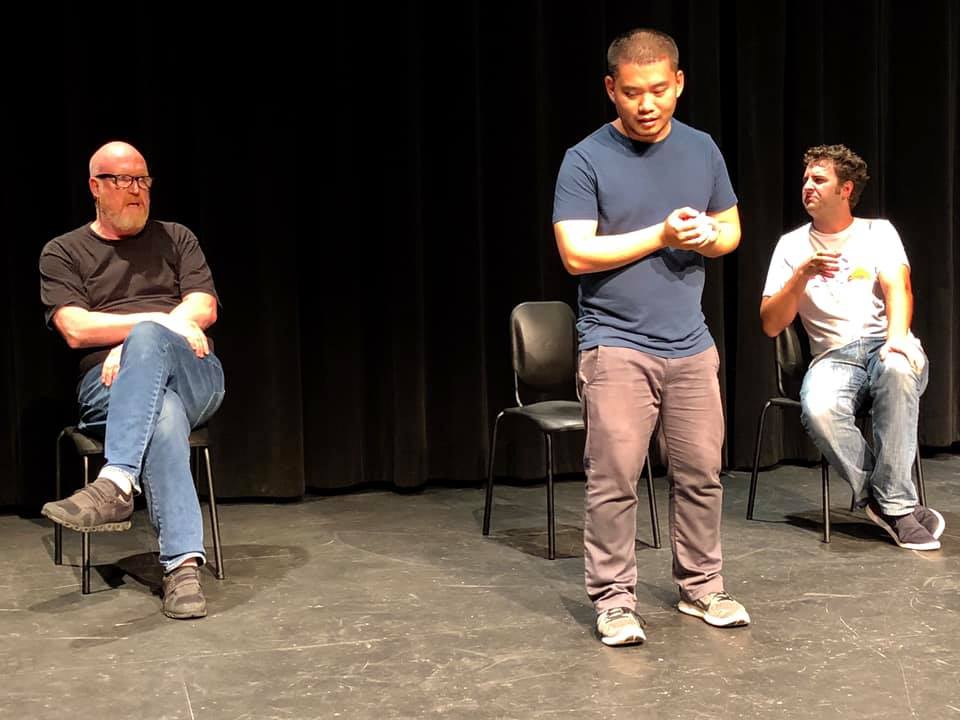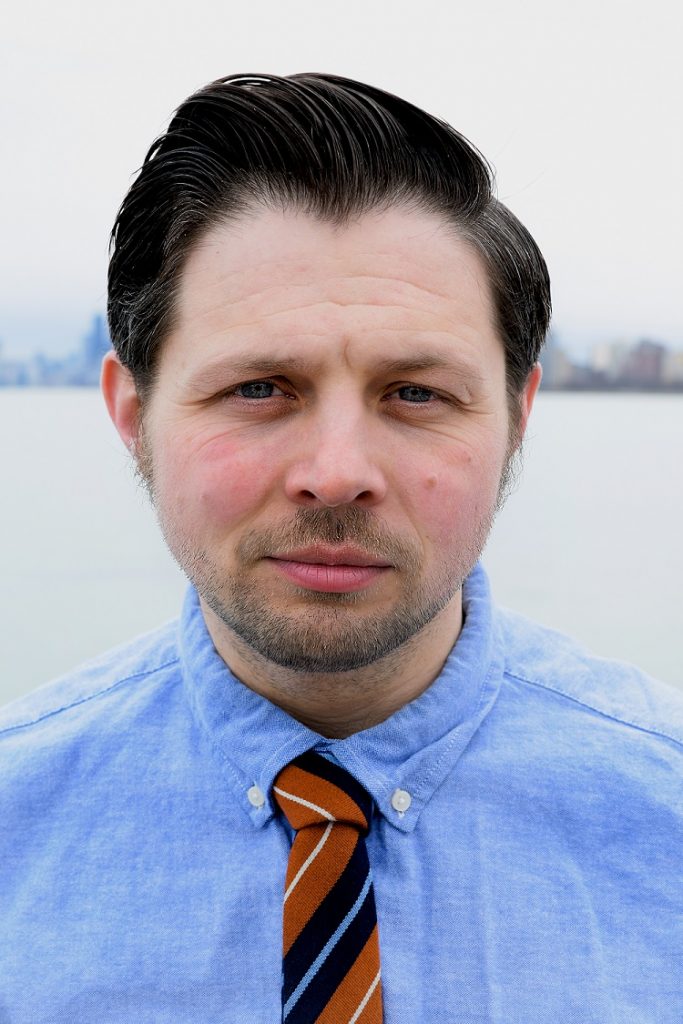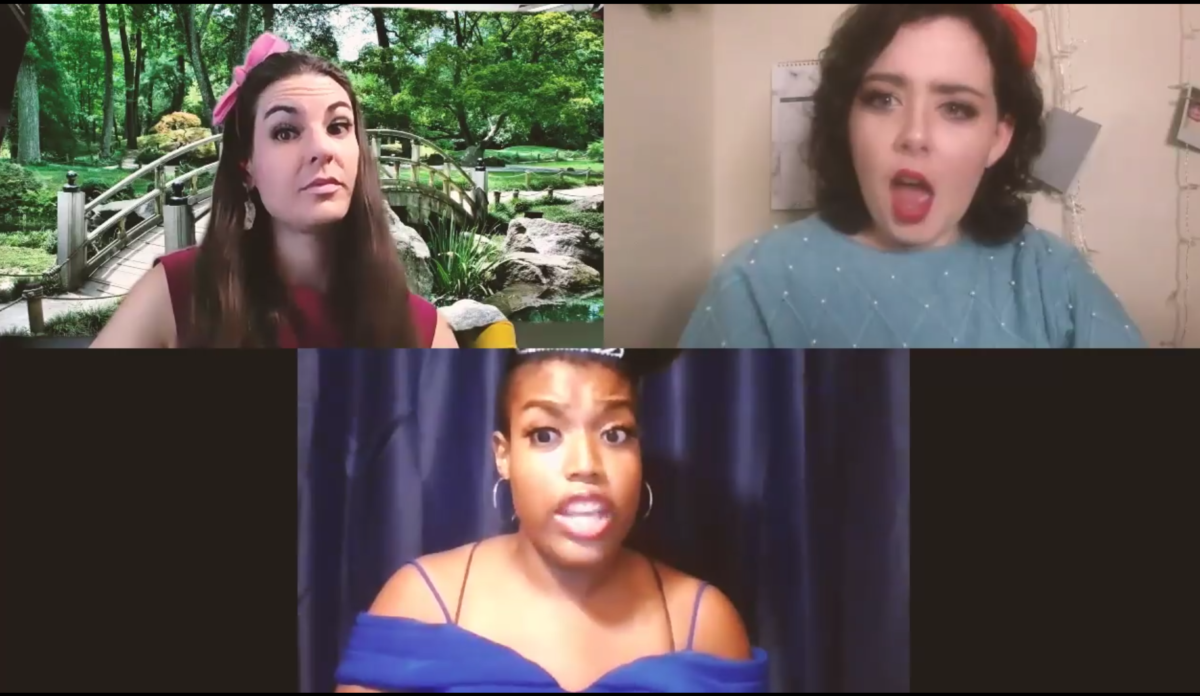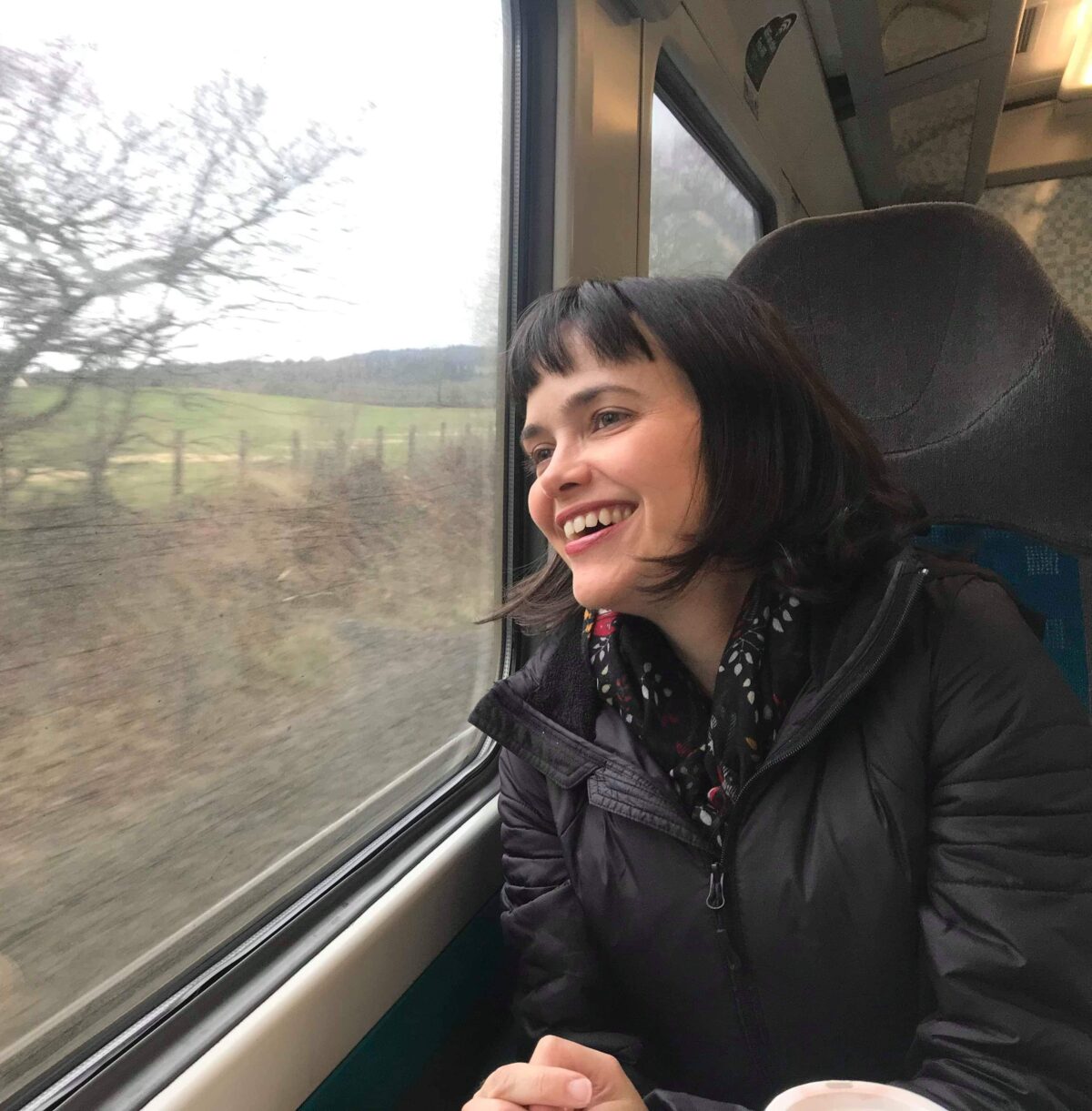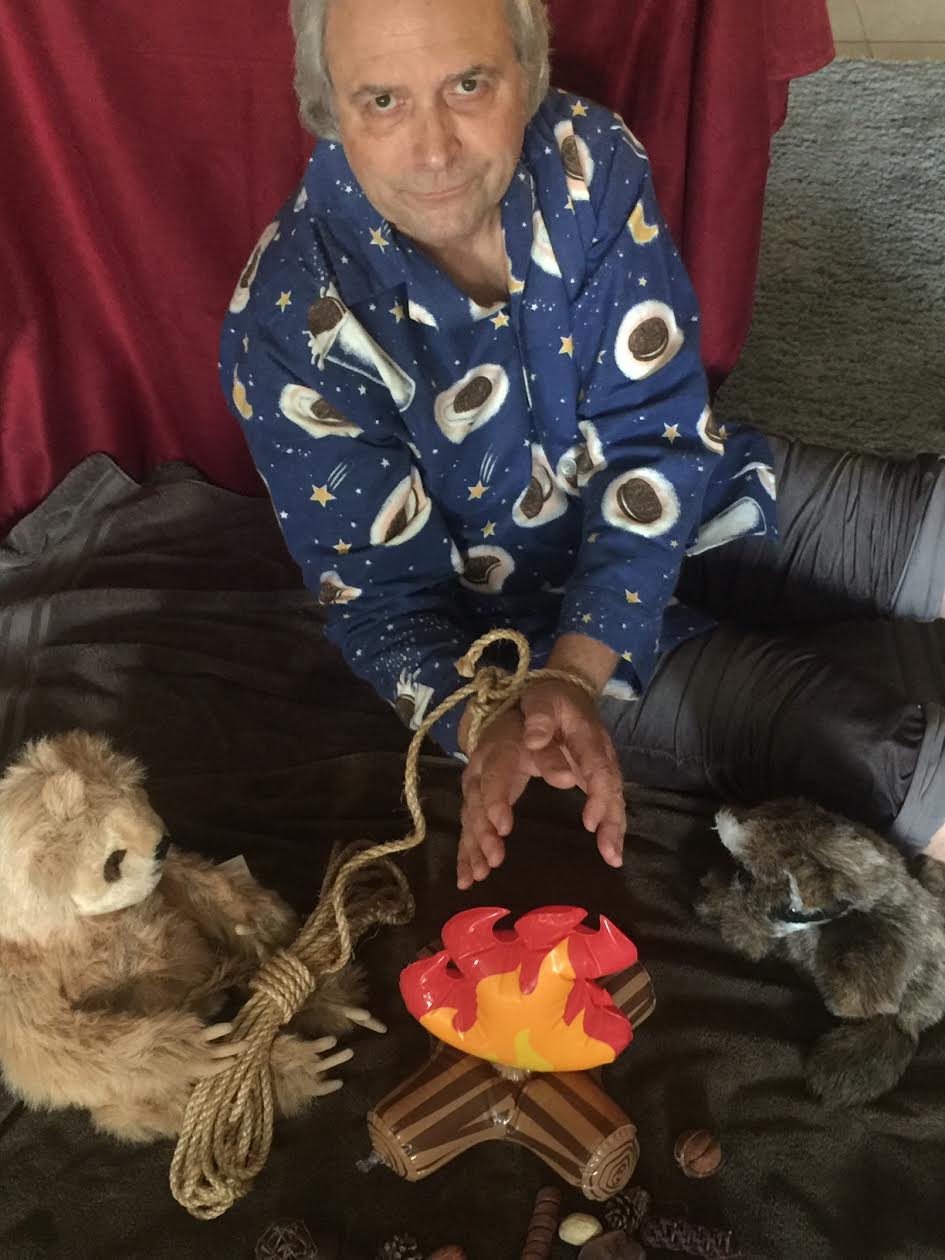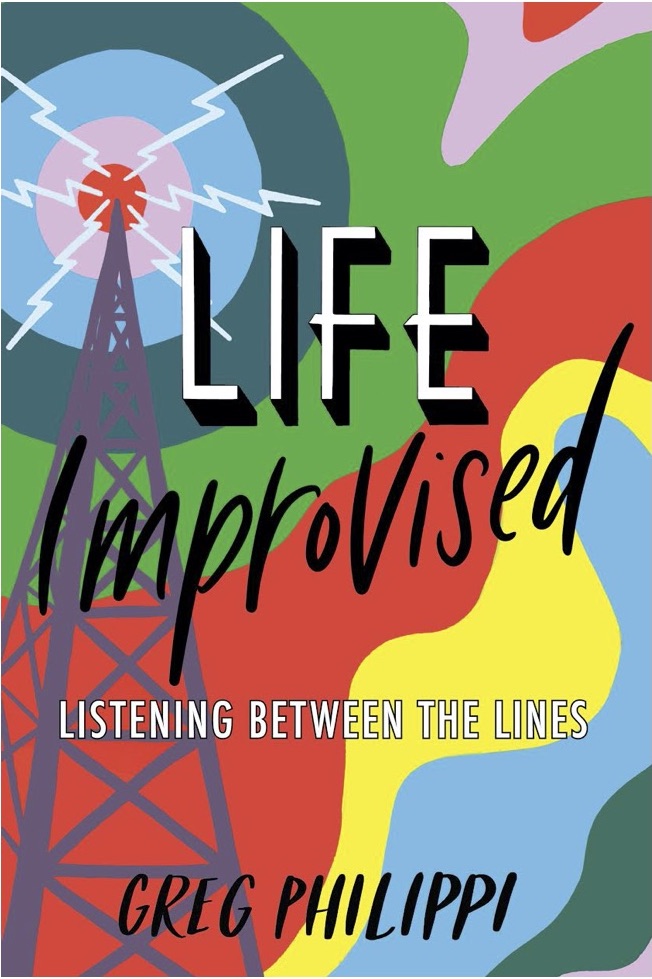Greg Philippi is an improviser and actor based out of Boca Raton, Fla. He will perform his solo show Stay Tied by the Campfire on Friday, December 11 in the 6:00 p.m. EST block at this year’s Very Normal Festival. In this spotlight interview, Philippi talks about what audiences can expect from his show, his long and fascinating career in the entertainment industry, and the time he and his band got banned from a punk club in Soho.
You’ll be gathering us all around a virtual campfire for your festival show, Stay Tied by the Campfire. What can audiences expect when they tune in for your show on Friday?
Rope…They will see rope. It’s a gritty crime drama and I’m all tied up. Okay, so maybe not quite a crime drama. I mean it’s rather bloodless. Audiences will meet some of my imaginary friends… but are they imaginary, really? For example: I know an exotic squash that just joined the library and I’m quite proud of that fact. I had made the acquaintance of an eggplant who adores being cuddled. Don’t we all? So yeah, they should expect to see me, in my jammies, next to a warm plastic fire and I’ll invite them in to sit beside me at the fire and meet a few friends. We might even celebrate with a couple songs provided there’s something to celebrate or lament. Love songs? I don’t think so. That would be going a bit too far. Okay, okay. Sorry, they’re talking in my ear. Right. I’m getting push back from a few of the culinary side dish items. They tell me due to the travel restrictions from COVID, you never know “what” might stop by as opposed to “who”… I’d just like to leave you with this one thought; What if Rodin sculpted a marshmallow? Would that have changed the trajectory of modern art?
Tell us a little bit about your improv journey. What got you interested in improv in the first place? What keeps you interested in it now?
I had been director of music for Vin Dibona Productions (America’s Funniest Home Videos and America’s Funniest People) and manager network music West Coast at the ABC-TV network, where I’d also worked in prime time dramatic programming. Anyhow, I’d just left a corporate job and saw this ad in the L.A. Weekly (west coast version of the Village Voice) for the Second City. The ad spoke to me, and soon after I signed up for the Second City conservatory program. That is what started my improv journey. It was an interesting time for me because I’d had a career, shifted gears midstream, and began to embrace the craft a bit later than many.
Years earlier, while studying at NYU, I would watch SNL religiously and even went to see the original cast. I remember sending SNL postcards and postcard-size photos of me with witty verbiage on the back; sometimes I mailed a couple a week, thinking the show might invite me to audition. However, at the time I was a musician not an actor and I had no clue how the cast was recruited. I didn’t even know about improvisers or what improv was. With the popularity of improv now, I know that’s hard to believe.
When I went through the Second City program, the final show involved acting and that was a new frontier. Final shows at Second City were all written by improvising an idea or concept over and over until a game or story emerged. Our final show then ran for several weeks and agents came.
After Second City I had some auditions for Fox television and several national commercials, though nothing connected right away so I kinda stepped away from improv for a time to deal with life. A few years later I jumped back in with both feet going through the UCB program as well as taking iOWest courses. I also studied at Monkey Butler Comedy. They’ve since closed but were run by former iOWest instructors. There was so much improv in Los Angeles during that time, I could go play or watch a show seven days a week and at a myriad of different theaters. There were also jam sessions available 4 nights a week at various theaters, which was a chance to not only perform but meet new players and keep your improv chops sharp. My wife had taken a job in Fort Lauderdale, Florida and I was traveling back and forth. Eventually I joined my wife here in south Florida.
What keeps me interested in improv today is that improv is constantly changing, and there’s always something new and unexpected around the corner. It’s also a great way to exercise my mind, a stimulating creative outlet and a way to meet new people. Over the past few years I’ve become more interested in musical improv and I find that exciting. I’d also really like to put together a strong musical improv team.
Can you share with us some memorable moments from your improv career?
I was performing in a jam at Second City when they were located in the HBO Comedy space connected to the Improv in West Hollywood CA. Robin Williams shows up and sits in the back. I’d heard that comedians get material from improv shows. I saw Robin and got so freaked I didn’t take the stage till he left. The funny thing is that the week I arrived in Hollywood he was in front of me in line at the locale Vons grocery store and about two weeks after that he exploded onto the scene as Mork.
One of my Second City instructors, Tom Booker, who was also a founding member of the Annoyance Theater in Chicago, invited Cindy Williams (Happy Days and Laverne & Shirley both on ABC-TV) to see me perform. She was evidently putting together a traveling group of improvisers. Tom, the instructor, decided to tell me just as we were going on stage. I decided to come up with the most unusual character possible for an improvised sketch in which I usually shined. The sketch went to crazy town because of my choice.
An improv coach who knew I’d been a professional musician recommended me to a casting director, which resulted in my auditioning for an MTV show that was going to be about an improv troupe who formed a rock band. I went to the audition and did well plus made a positive impression on the producer, but MTV never moved forward with the concept. Still, the audition was thrilling…
As a monologist for a Monkey Butler Comedy show in Hollywood, I appeared before an audience of over 300 which was the largest improv audience I think I’ve ever performed for. The show was a success, though at that moment I realized there is no money in improv.
I played Tarzan in an improv/sketch piece I wrote for a competition judged by Derek Waters (creator Drunk History) at Second City. Tarzan was the straight man, Jane the clueless ingenue, and our chimp was the wacky character that bounced everything off the straight man. We placed second.
Rumor has it that in addition to being a veteran improviser, you also have a background in music, playing in bands in punk clubs in New York. Can you tell us a story from that period in your life?
So yeah, I played in punk bands in New York, then went to Detroit where I did the same, and then eventually Los Angeles, where I played in bands for a period before eventually working in the industry other than as a musician. I played bass on a tribute to Johnny Thunders (New York Dolls) album with the Red Hot Chili Peppers drummer Chad Smith. I sat in on guitar with one-hit wonders Animotion (“My Obsession” on Polygram records) after having been in a band with their original keyboardist (now an Emmy Award-winning music supervisor), jammed with Doors guitarist Robby Krieger in his studio, and I had a short lived music supervision company with Iggy Pop bassist Tony Sales (son of comedian Soupy Sales) — but you want a story from my time in the Village in New York…
I was playing a punk club in Soho, now an area filled with upscale clothing shops. It was a warehouse district then. Clubs requested two shows per night. My band was supposed to be sharing the bill with another group, so as co-headliners we’d agreed to headline the first show and the other band would headline the second show.
After the first set there was a break. Our bassist sent our keyboard player uptown for some piece of gear knowing she’d be late returning so he could tell the club we had to go on second. The other band was pissed and rightly so when we didn’t take the first slot. Half the crowd were fans of the other act. So when we took the stage the crowd began to get rowdy and then angry and at the end of our second set a riot broke out. During the riot the bathroom mirror was smashed and the basement storage room broken into by a mob. Club patrons began helping themselves to free beer. I had two 1950s mannequins I’d set up in front of my gear for our show. One was smashed during the commotion. My somewhat conservative girlfriend ran out of the club screaming because the other fans were yelling obscenities and then I had to turn my amp away from the crowd so the speaker wouldn’t get kicked in. When I poked my head outside of the club for a breath of air, there was a pimp cutting coke on the hood of my car with a few ladies from his stable. I decided against disturbing them, instead returning back to the club, which banned us and the other band from ever returning.
You’ve got a book coming out soon about how improv can improve your everyday life. What inspired you to write the book? And is it true that it features an anecdote about Johnny Depp?
Life Improvised, the new book, explores improv concepts using some stories from my life as examples. The book looks at how your life can strengthen your work on stage and how your work on stage can improve your life.
Yes, I had an encounter with Johnny Depp that I use as an example of creating strong opening lines. I also write about role-playing with Prince, a jam session I was invited to by Jon Anderson lead vocalist with classic rock band Yes. In his case I use the story as an example of my own self-sabotage. There’s an anecdotal story in which I came face to face with Michael Jackson in a comic store, and a narrow escape from a rapper known as The Claw who had a metal arm that clicked when he was upset like a Bond villain.
Life Improvised; Listening Between the Lines is more than stories. The book also takes a look at improv concepts not often covered in improv books, such as the seven magical realms improvisers utilize, power objects, and playing animals.
Though you’ve lived all over, you currently live in Boca Raton, Florida. What’s your most favorite and least favorite thing about living in south Florida?
I have lived in at least eight states, and some multiple times. We moved every couple years when I was growing up. The least favorite thing about south Florida is the humidity during the summer months. It can be brutal. My favorite thing is the wildlife. I love all the different kinds of lizards, snakes, turtles, toads, frogs, and birds. It’s fascinating.
Having lived in southern California for most of my adult life. when I first arrived in Florida I had a hard time getting used to the food, and really missed living in an actual city and having the cultural events of a city at my fingertips, as well as being surrounded by the entertainment industry. I was also upset that it’s so hard to keep cacti alive in the humidity here. Next, it took some adjusting to living in a red state. I’ve been here awhile now and there are some great people and many are very talented and creative improvisers as well. That makes up for a lot.
Finally — we are contractually obligated to ask this question — on an ascending scale of 1 to 10, how normal would you say your show is, and why?
So are you stating 1 as normal to 10 as super normal or maybe 1 as normal to 10 as super abnormal? I’ll put it this way: My son once told me he liked New Orleans, which is a place I love. NOLA is a real breath of fresh air. My son said he liked it cause it was the only place I’d taken him that’s more abnormal than L.A. I’ll just say here and now that my show isn’t Nebraska-normal nor is it New Orleans or Los Angeles weird. It’s somewhere in between New Orleans and Los Angeles. I like to think of Tied to the Campfire as a Dorothy Lamour picture during her Hawaiian period. It’s got nice legs!
